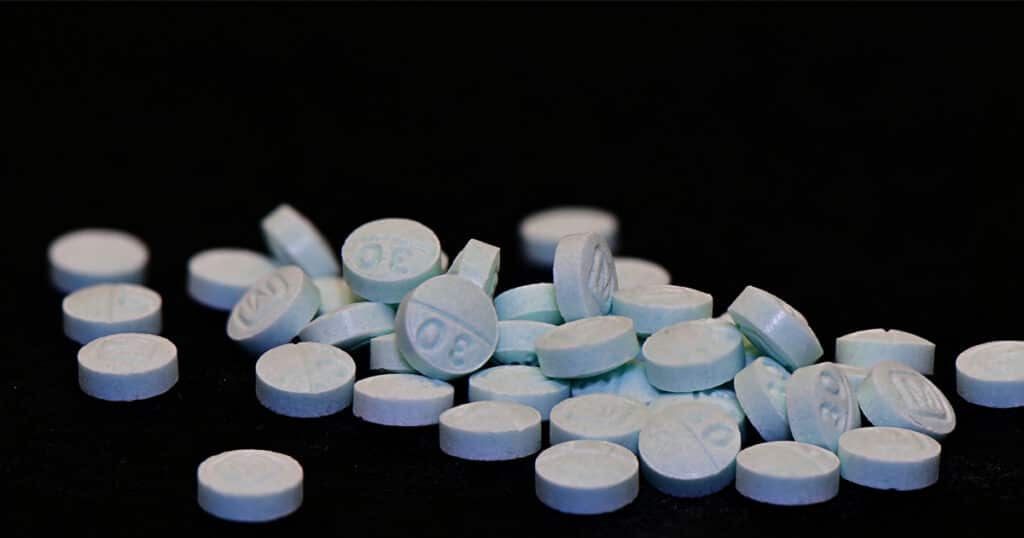
Feds bust Sinaloa Cartel associates, Chinese-linked money launderers in California
Another federal case highlights how Mexican cartel operatives in the U.S. are partnering with the Chinese underworld to traffic illicit drugs and launder the proceeds.
The Justice Department announced the result of a multi-year investigation after the DEA uncovered a partnership among Mexican Sinaloa Cartel associates operating in Los Angeles and a Chinese criminal syndicate operating in Los Angeles and China.
The Sinaloa Cartel and Chinese operatives are largely responsible for the recent massive influx of fentanyl into the U.S., The Center Square has reported. After receiving fentanyl precursors from China, cartel operatives make the illicit drugs in Mexico and then orchestrate their smuggling and trafficking into the U.S. Drug proceeds, weapons, stolen vehicles and other contraband are then smuggled south across the border, law enforcement officials have explained to The Center Square.
One way to launder large sums of cash in U.S. currency is to use Chinese underground money exchanges established in the U.S., federal agents have found.
The DOJ recently unsealed indictments of 24 defendants on counts of conspiracy to aid and abet the distribution of cocaine and methamphetamine, to launder monetary instruments, and to operate an unlicensed money transmitting business.
The multi-agency investigation found that from October 2019 to October 2023, Sinaloa Cartel operatives in California imported large quantities of narcotics, including fentanyl, cocaine and methamphetamine from Mexico, generating $50 million in U.S. cash.
In January 2021, the lead defendant, Edgar Joel Martinez-Reyes, 45, of East Los Angeles, allegedly traveled to Mexico to meet Sinaloa members to make a deal with money remitters linked to a Chinese underground banking system to launder drug trafficking proceeds in the U.S. Cartel members then distributed cocaine, methamphetamine and other narcotics, generating U.S. dollars as drug proceeds, according to the indictment.
They then delivered hundreds of thousands of U.S. dollars in cash to a San Gabriel Valley-based money transmitting group with links to Chinese underground banking. Drug proceeds were allegedly processed in the Los Angeles area, concealed and made accessible to cartel members in Mexico and elsewhere.
The organizations also allegedly helped Chinese nationals evade China’s currency controls, according to the investigation. Currently, the Chinese government prohibits its citizens from transferring the equivalent of more than $50,000 per year out of China. Chinese nationals have been able to circumvent the law by using U.S. currency brokers and Chinese underground money exchanges in the U.S. that charge a fee to conceal the nature and source of the funds, the DOJ explains.
“Drug traffickers increasingly have partnered with Chinese to take advantage of the large demand for U.S. dollars from Chinese nationals. The funds that are transferred in China are then used to pay for goods purchased by businesses and organizations in Mexico … needed to aid the drug trafficking organization to manufacture illegal drugs, such as precursor chemicals, including fentanyl,” the DOJ said in a statement.
The money laundering scheme also involved purchasing real or personal property, including luxury goods and cars to be shipped to China. Drug proceeds were also laundered through cryptocurrency transactions, purchasing cashier’s checks, or depositing small amounts at a time into newly opened bank accounts, according to the indictment.
After being indicted, some defendants fled the U.S. Recently, Chinese and Mexican law enforcement authorities working with the DOJ arrested some of them. Twenty defendants are expected to be arraigned in the U.S. District Court in Los Angeles in the coming weeks.
“Relentless greed, the pursuit of money, is what drives the Mexican drug cartels that are responsible for the worst drug crisis in American history,” DEA Administrator Anne Milgram said. “Laundering drug money gives the Sinaloa Cartel the means to produce and import their deadly poison into the United States.”
It’s also a way to appear to legitimize illegal activity, IRS Criminal Investigations Chief Guy Ficco says. “Drug traffickers generate immense amounts of cash through their illicit operations. This case is a prime example of Chinese money launderers working hand in hand with drug traffickers to try to legitimize profits generated by drug activities.”
As part of the investigation, officials seized $5 million in narcotics proceeds, over 300 pounds of cocaine, over 90 pounds of methamphetamine, 3,000 Ecstasy pills, 44 pounds of magic mushrooms, numerous ounces of ketamine, three semi-automatic rifles with high-capacity magazines, and eight semi-automatic handguns.
If convicted of all charges, each defendant faces a mandatory minimum sentence of 10 years in prison up to life in prison.
The announcement comes after the U.S. authorities charged Chinese companies and executives with illicit fentanyl trafficking in New York. In Florida, they also charged China-based companies and their employees with crimes related to fentanyl and methamphetamine production, distribution of synthetic opioids and sales resulting from precursor chemicals, The Center Square reported.
It also comes after the DOJ charged 28 members of the Sinaloa, including drug kingpin El Chapo’s sons, unsealing indictments in New York, Illinois and the District of Columbia.



